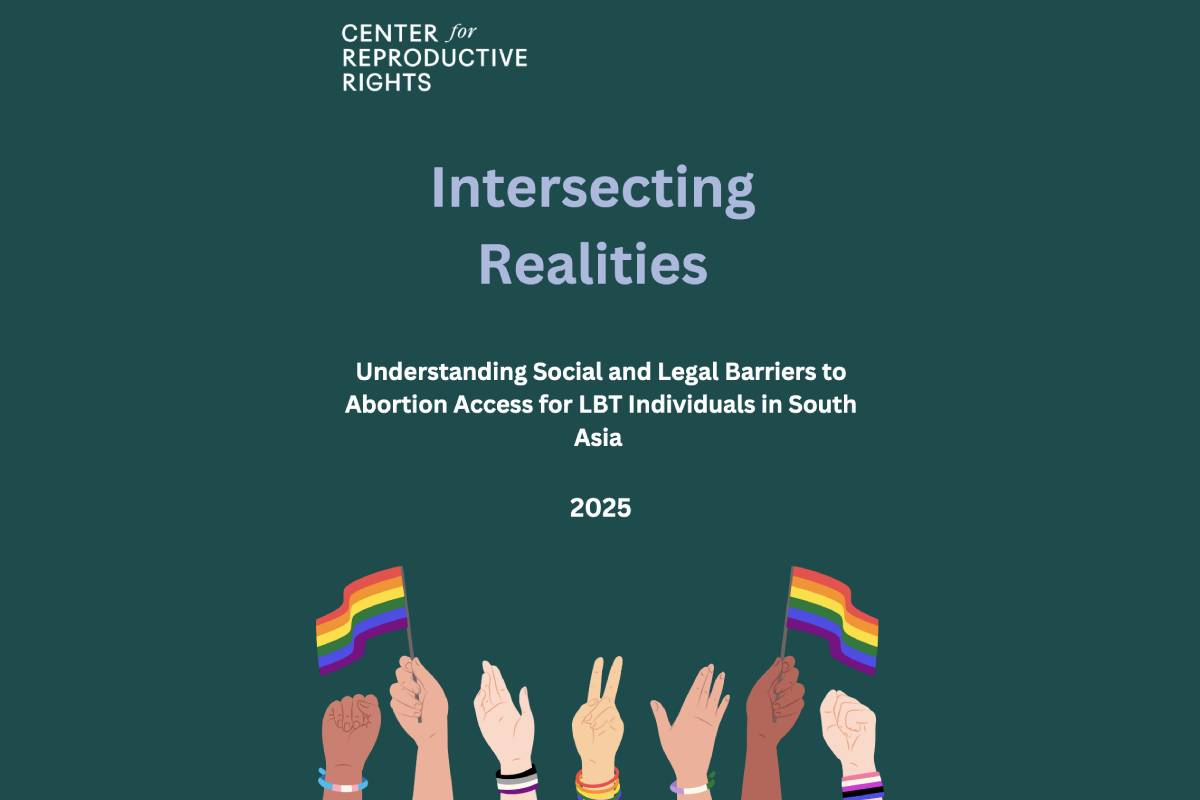
by Vinitha Jayaprakasan, SARJAI youth advocate, with CRR Asia staff editorial support
In South Asia and around the world, lesbian, bisexual, and transgender (LBT) people face unique and heightened barriers to abortion access. The Center for Reproductive Rights ’ Asia Program, in collaboration with the South Asia Reproductive Justice and Accountability Initiative (SARJAI) network, examines these legal and social barriers in a new briefing paper titled Intersecting Realities.
Research on abortion access has so far mostly focused on cisgender and heterosexual women, leading to the erasure of queer women, transgender men and transmasculine people who experience pregnancy. This paper bridges that gap, drawing on in-depth interviews with sexual and reproductive health and rights (SRHR) organizations that work closely with queer people in South Asia.
About the research
In May 2023, a three-day virtual training on sexual and reproductive health and rights in Asia was organized by the Center for Reproductive Rights (the Center) in collaboration with the South Asia Reproductive Justice and Accountability Initiative (SARJAI) to strengthen understanding of SRHR issues and challenges in the region amongst a new cohort of young legal practitioners and advocates. A specific vision for this initiative was to strengthen the capacities of a small group of young advocates to build newer advocacy initiatives which could provide direction to SARJAI’s work in the future. Proposals were received from a group of the participants and through a careful process, this initiative/project has been developed, which aligns with the Center’s strategic priorities, including its catalyze goal, as well as the Asia program’s strategic priorities. The project seeks to address the evidence gap in relation to queer and trans persons’ access to SRHR services, including to abortion services in the region, who continue to be excluded from abortion law and policy frameworks.
The Table of Contents summarises the main topics covered in the report:
–International human rights standards
–Country contexts: Bangladesh, India, Maldives, Nepal, Pakistan, Sri Lanka
–Barriers to seeking SRHR and abortion services: restrictive laws on abortion and other SRHR; criminalisation and/or full legal recognition of queer identities, awareness and perception of abortion and SRHR needs, barriers within the healthcare system, including conscientious objection and discrimination, and lack of social acceptance.
–Conclusion and recommendations related to law and policy, service delivery and abortion rights movements.
SOURCE: Center for Reproductive Rights, 23 July 2025. PHOTO(right): © Tirthankar Das/iStock



